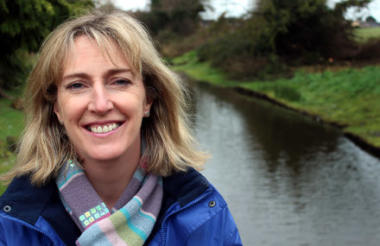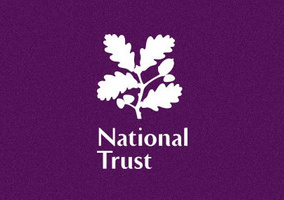The Charity Commission has found no grounds for regulatory action against the National Trust, which had been subject to scrutiny after publishing a report examining its links to colonialism.
The regulator opened a regulatory compliance case in September 2020, after the charity published an interim report examining links between its properties and history of colonialism and slavery.
This report had led to some negative media coverage and public criticism of the charity.
Concerns raised about the charity included, for example, the report’s examination of the links between Winston Churchill’s former home at Chartwell and colonialism and whether the charity had, in undertaking this work, acted outside its charitable purposes.
The regulator had decided that these concerns warranted examination because they had the potential to damage the charity’s reputation and undermine trust and confidence in charities more widely.
Its then chair, Baroness Stowell, revealed that the Commission was engaging with the National Trust when she appeared on the Telegraph's political podcast.
Today, the Commission said it has looked at whether the report itself was in-line with the charity's purposes, and also examined the trustees’ decision making, including in managing the potential risk to the charity’s reputation in commissioning and publishing it.
The Commission also held a formal meeting with the charity, where it asked a variety of detailed questions to the trustees and senior management.
Findings: Trustees carefully considered the potential negative reaction
It has now concluded that the National Trust “provided a well-reasoned response to the question of how the publication of the report furthered the charity’s purposes”.
Indeed, the trustees were able to demonstrate that they explicitly considered and determined that commissioning and publishing the report was compatible with its charitable purpose.
The regulator “is satisfied that the trustees recognised and carefully considered the potential negative reaction that could result from the publication of the report”.
Before it commissioned the research, the charity consulted a panel of 2,000 members, finding considerable support for research into challenging histories, provided the findings were appropriately researched and contextualised.
'Did not fully pre-empt potential risks'
Nonetheless, the report “did generate strongly held and divided views”, and the Commission, therefore, says its reasonable to conclude that the Trust’s “planning and approach did not fully pre-empt or manage the potential risks to the charity”.
Specifically, the Commission says the charity could have done more to clearly explain the link between the report and the Trust’s purpose.
In light of the criticism, the National Trust has undertaken work to make clear to its membership, critics and the wider public why it commissioned this work, and the regulator “has welcomed the charity’s commitment to learning lessons from its recent experience”.
The National Trust has said it accepts the Charity Commission's conclusion.
A spokesperson said: “We welcome the Charity Commission's conclusion that there are no grounds for regulatory action against us, following complaints the Commission received about the report we published on historic slavery and colonialism links at the places we care for. We are also pleased the Commission is satisfied we gave due consideration to how the report, and the research behind it, would further our charitable purpose.”
Charity Commission CEO: ‘I understand that this conclusion will not satisfy everyone’
In a blog published today, the Charity Commission’s chief executive, Helen Stephenson, reflects on the National Trust case and writes the charity “found itself in the middle of a storm”.
Her blog reads: “I understand that this conclusion will not satisfy everyone. But I hope it is reassuring to those who raised concerns about the charity’s report, who said it made them feel uncomfortable and concerned that the charity had lost its way, that the Commission has examined the Trust’s actions very closely.”
She states that the Commission examines all concerns about charities “fairly and treat with respect all those who raise them”, adding “we do so impartially, and robustly, with no pre-judgments as to what we will find”.
She says the regulator operates in a pluralistic society “that values free speech” and states no complaint about a charity is dismissed on the grounds of the world view that motivates it.
“Charities must be able to show that they are driven, not by the background, world view or political inclinations and interests of their leaders, but by their mission and purpose, and by the needs of the people or causes they serve,” she writes.
“They should be thoughtful about the impact of their actions on their supporters and the public more widely and consider any likely concerns or controversy before they act. And they should remain alive to these risks on an ongoing basis.”
National Trust boss: 'History can be challenging and contentious'
Hilary McGrady, director general of the National Trust, has also published a blog.
She writes: “I am passionate about culture being a force for good in society. Having lived all my life in Northern Ireland I know only too well the impact of allowing cultural identity to become a source of division. I want the Trust to be dedicated to finding ways of making the arts, culture and heritage a vehicle for bringing people together, for shared acknowledgement, respect and understanding.”
McGrady says that the National Trust will continue to take a wide-ranging and evidence-based approach to history.
She adds: “There is so much to be proud of in our history. The wonderful collection of places the Trust cares for, that have been cherished for generations before us, is a testament to that. However, history can also be challenging and contentious. It is surely a sign of confidence, integrity and pride that while we can celebrate and enjoy history we can also explore and acknowledge all aspects of it.”
Related articles












